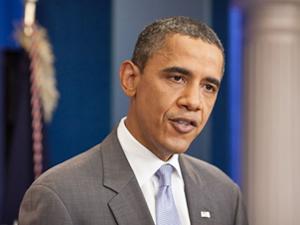How debt deal impacts U.S. economic recovery
President Obama gives his support for a bipartisan deal to reduce the nation’s deficit and avoid default. (Photo: Whitehouse.gov)
Story from The Takeaway. Listen to audio above for full report.
Last night, President Obama and Senate Majority leader Harry Reid said congressional leaders of both parties have agreed on a plan to lift the debt ceiling. They will present the plan to their caucuses this morning, and hope for the measure to pass through votes by both the House and Senate in order to avoid a U.S. default by August 2.
The last minute deal, which extends the debt limit to 2013, would cut at least $2.4 trillion dollars over ten years, with the lowest level of federal spending as a percent of the economy in more than 50 years.
While the country anxiously waits to see if lawmakers can raise the debt limit before the deadline, a few economists and financiers are emphasizing the importance of a long-term financial solution to the deficit, even if that results in a temporary default. They question the lasting effects of a default in terms of investor confidence, citing the reputation and dominance of U.S. currency in financial transactions.
Louise Story, Wall Street and finance reporter for The New York Times, says some economists are warning that the current lackluster economic recovery could slow down even further with cuts in federal spending. “The rationale for the reason this could hurt the economy is that, the last couple of years the federal government has been spending a lot to try to bring the economy back, and so without that it’s possible that there’ll be fewer jobs.”
But, Story adds, more conservative economists argue that less government spending — which means lower taxes in the minds of the private sector and consumers — would lead to more spending by individuals and companies, and spur economic growth.
————————————————————–
“The Takeaway” is a national morning news program, delivering the news and analysis you need to catch up, start your day, and prepare for what’s ahead. The show is a co-production of WNYC and PRI, in editorial collaboration with the BBC, The New York Times Radio, and WGBH.
Our coverage reaches millions each week, but only a small fraction of listeners contribute to sustain our program. We still need 224 more people to donate $100 or $10/monthly to unlock our $67,000 match. Will you help us get there today?
